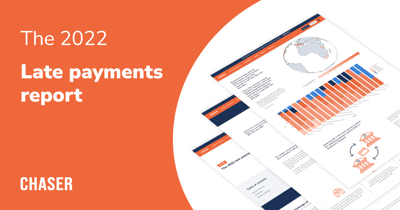If you have an unpaid invoice for goods or services, you are, by law, entitled to claim interest on commercial debt and even compensation for a late payment.
Under the Late Payment of Commercial Debts (Interest) Act 1998, UK businesses are able to react to the 1 in 10 invoices that are paid late by charging interest, claiming compensation, and recovering costs associated with debt collection.
While we would all prefer to get paid on time, knowing your rights when it comes to late payments is vital to effective credit control and keeping control over your accounts receivables.
So, if you are one of the UK businesses waiting on an estimated £34 billion in late payments, this is your ultimate summary of the UK law on late payment of commercial debt.
When does a payment become ‘late’
The first thing to understand when it comes to the late payment of commercial debt is what qualifies a payment as being ‘late’.
As per the 1998 Act, if a contract specifies an agreed payment date or timeline, the payment is late as soon as that timeline expires.
If no payment timeline is stated in the contract, then it defaults to a payment becoming late 30 days after the goods or services have been delivered, an invoice has been issued, or an acceptance procedure has been completed.
In this case, an acceptance procedure is defined as any procedure that verifies if goods or services comply with the stipulations of a contract.
There are, however, some exceptions to these rules. If the agreed payment timeline is more than 60-days and is judged to be grossly unfair to the supplier, then interest can be charged after 60-days.
Similarly, if there is an acceptable procedure in place that takes more than 30 days after delivery and is judged to be grossly unfair to the supplier, then interest can be charged after 30-days.
The term ‘grossly unfair’ is given to mean significant deviations from sound commercial practice, an absence of good faith and fair dealing, or a lack of justifiable reason for extending the payment date.
Interest on late commercial payments
The amount of interest you can charge on late payment is defined by the contract you have with your client. If your contract contains a specific late payment clause that sets out an interest rate, then you must abide by that rate.
As per the example given by the UK government, the interest rate would be worked out as below:
If your business was owed £1,000 and the Bank of England base rate was 0.5%:
- the annual statutory interest on this would be £85 (1,000 x 0.085 = £85)
- divide £85 by 365 to get the daily interest: 23p a day (85 / 365 = 0.23)
- after 50 days this would be £11.50 (50 x 0.23 = 11.50)
In addition to claiming interest on your late payment, you can also claim compensation for your efforts to recover the debt. The amount you can claim is a fixed sum based on the amount you are owed.
Invoiced amount Amount of compensation
Up to £999.99 £40
£1,000 to £9,999.99 £70
£10,000 or more £100
You can claim compensation for reasonable costs each time you try to recover your outstanding debts.
If the reasonable costs associated with your attempts to recover your debt exceed the amounts stated above, such as legal costs or debt collector’s fees, you are entitled to claim the difference between those two amounts.
Frequently asked questions
To give you all the information you need to on late payment interest, we’ve collected and answered some of the most common questions.
What happens if my customer disputes the invoice?
You are entitled to charge late payment interest on any amount your customer admits is owed and has not paid.
However, if there is a legitimate dispute of the entire amount of the invoice, then you cannot charge late payment interest until the dispute has been resolved.
How long do I have to charge late payment interest?
You can charge late payment interest up to six years after the invoice has been issued, even if the invoice has already been paid. The timeframe you can charge for starts when the invoice became due and ends when it was paid in full.
What do I have to tell my customers?
As the Late Payment of Commercial Debts (Interest) Act 1998 gives you the right to claim late payment interest as a statutory right, you don’t legally have to tell your customers anything.
However, including a section on late payment interest in your contract and keeping your customer updated on all your decisions is just good practice.




